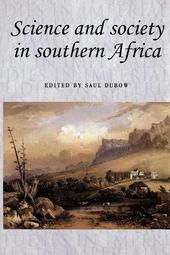
|
Science and Society in Southern Africa
Paperback / softback
Main Details
Description
This collection, dealing with case studies drawn from South Africa, Zimbabwe, Mozambique and Mauritius, examines the relationship between scientific claims and practices, and the exercise of colonial power. It challenges conventional views that portray science as a detached mode of reasoning with the capacity to confer benefits in a more or less even-handed manner. That science has the potential to further the collective good is not fundamentally at issue, but science can also be seen as complicit in processes of colonial domination. Not only did science assist in bolstering aspects of colonial power and exploitation, it also possessed a significant ideological component: it offered a means of legitimating colonial authority by counter-poising Western rationality to native superstition and it served to enhance the self-image of colonial or settler elites in important respects. This innovative volume ranges broadly through topics such as statistics, medicine, eugenics, agriculture, entomology and botany. -- .
Author Biography
Saul Dubow is Reader in History in the School of African and Asian Studies, University of Sussex
Reviews'A strength of the volume is its coverage of the appliedA" aspects of knowledge, from Anthropology through to Eugenics and state and social planning. There is also a commendable sensitivity to the unique ethnic dynamics of southern Africa, not least, for example, the complications of an indigenizedA" and powerful Afrikaner nationalism.' Donal Lowry, Oxford Brookes University
|